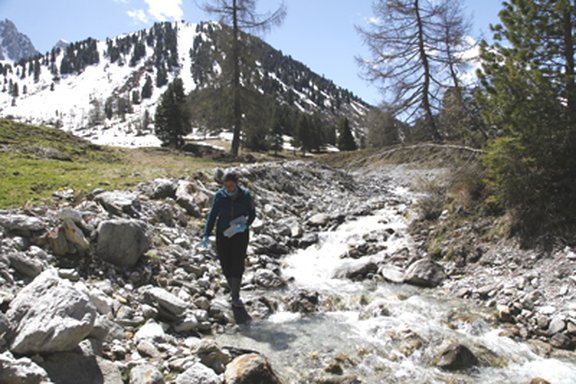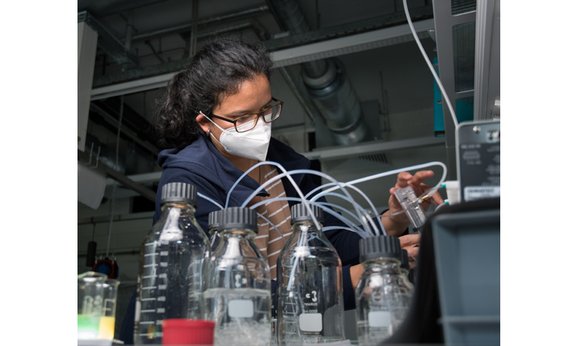I’m Tania Sosa, from Nicaragua (Central American country). I’ve always been interested on the living organisms in the water, ever since I was a child playing around in the rock pools at “Casares”, the Pacific-ocean beach where my family and I always went for holidays.
I studied Environmental Engineering at the University of Central America – UCA, and from the very beginning, my interest was not purely on the conservation side of environmental sciences, but also on the practical-problem solving side of it. That’s why I followed my studies with a master in Applied Limnology at BOKU (University of Natural Resources and Life Sciences, in Vienna). My master thesis focused on the effects of different Dissolved Organic Matter (DOM) sources, coming from corn leaves, mixed-forest leaves and dung, on stream microbial activity. This research was done through a flume laboratory experiment, which brought me closer to my already-known love for lab. analysis, and a new-found passion for experimental limnology.
Since September 2020, I joined the Fluvial Ecosystem Ecology group at the Ecology Department of the University of Innsbruck, for my PhD in Biology, focused on the effects of fragmentation on river network functioning. My research is part of the ERC[1] Project FLUFLUX (“Fluvial Meta-Ecosystem Functioning: Unravelling Regional Ecological Controls Behind Fluvial Carbon Fluxes”), which aims to develop a deeper mechanistic understanding of fluvial (streams and rivers) carbon fluxes by investigating ecological processes at the regional scale (river network). The project emphases on the process of respiration of terrestrial Organic Matter (tOM), which has been hypothesized to be an interactive product of the diversity of organisms and resources, co-existing and interacting within the river network, considered here as a fluvial meta-ecosystem.

For my research, we aim to assess the consequences of fragmenting a river network, particularly due to damming, on the functioning of fluvial ecosystem both at the local (reach) and regional (catchment) level. Specifically, we focus on how fragmentation affects patterns of biodiversity (based on microbial community’s functional diversity), resource diversity (different DOM diversity) and resource use (measured by respiration by heterotrophic bacteria), all investigated through a laboratory-based fluvial meta-ecosystem experiment.
So far, a lot of hydraulic and methodological challenges have emerged in the process of building a river network in the laboratory. But understanding those challenges at the level of an interconnected lab-system within control conditions, will define how we answer our questions regarding microbial communities and how they shape river network’s diversity patterns. Working under the conditions the laboratory provides, allows us to abstract only some of the features of a river network (resources transport and spatial distribution) to be able to understand the mechanisms behind patterns of diversity and ecosystem functioning at the regional scale, without the constrains and fast-changing variables happening in a natural river network. For more information about the FLEE group and my research, you can check the following links or follow us on Twitter:
https://www.uibk.ac.at/ecology/flee/
https://www.uibk.ac.at/ecology/flee/group-members/
@T_SosaJiron
[1] European Research Council

